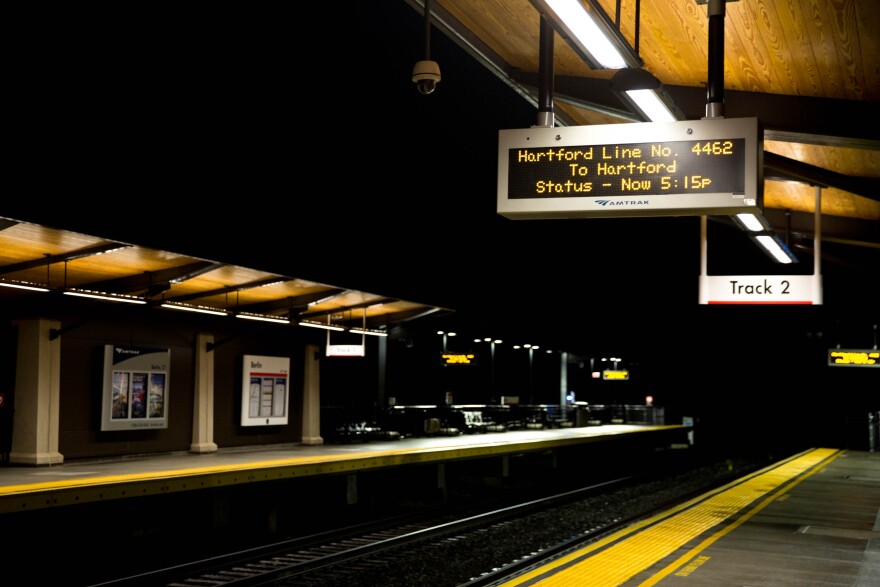The state of Connecticut and Amtrak do not have a shared agreement that makes tickets bought through the rail giant and ones purchased by local students and CTrail passengers equal.
The Connecticut Department of Transportation has said since September that policy dictates that Amtrak conductors can’t ask CTrail and student-ticketed passengers to exit trains that are full on the Hartford line.
But Connecticut Public Radio’s examination of the contract between the two shows in fact that there is no formal “One Ticket, Any Train” agreement between Amtrak and the DOT.
“The challenge that we’re faced with is we have more customers wanting to use the service than available seats,” said Rich Andreski, DOT’s bureau chief of public transportation. “The bottom line is we need to provide more seats for customers.”
Amtrak trains service the Hartford Line, a route between Springfield and New Haven, with two cars – two fewer than what CTrail trains have on the line. Since September, when those Amtrak cars are at capacity, Amtrak conductors have asked CTrail and U-Pass ticketed passengers to either stay on the platform or give up their seats so that Amtrak passengers can be assured a ride.
The state said that Amtrak generally honors CTrail’s “One Ticket, Any Train” wishes, but obviously not when conductors are facing capacity issues out in the field.
Amtrak said that it would only ask non-Amtrak passengers to give up their seats and wait for the next train if there was an “unsafe condition,” like if passengers have to stand in the vestibule.
Further complicating the issue is that the state said Amtrak requires reservations on its trains while the Hartford Line doesn’t. That’s a major deciding factor in how conductors operate on an overcrowded train.
This is going to be a problem that Andreski’s new boss Joe Giuletti will be greeted with when he takes over as commissioner of the Department of Transportation this week.
“We’re going to be prepared to announce some changes in the next week or so,” Andreski said. “We don’t like this. This is not a good situation. We want to build ridership. We want to build interest in the service. And this is certainly counter-productive right now.”
Amtrak is a quasi-government entity that has the right to provide service on the Hartford line and be reimbursed by states thanks to the federal Passenger Rail Investment and Improvement Act of 2008.
The state is limited in its ability to change or enhance service. The state has to submit a written proposal to Amtrak if it wants the company to add cars to trains or if it wants Amtrak to adopt a certain ticket policy.
But it’s Amtrak that has the right to accept or reject.
Any other relief would have to come from the federal government. Connecticut Senator Richard Blumenthal has demanded that Amtrak do more in ensuring that passengers can ride the trains that they paid to get on.
“State authorities have no power to order Amtrak to add more cars, but we should all be insisting, particularly at the federal level, that they do the right thing here,” Blumenthal said. “The federal government can exercise authority here. It should do so. The Department of Transportation – at the federal level – should do whatever is necessary, even if state authorities cannot themselves do it.”
Andreski said that taking legislative action would be a last resort. He said it might be best for business if Amtrak and DOT work something out on their own.
“We also have a very long-standing working relationship with Amtrak and we have lots of facets to that relationship,” Andreski said. “Although Hartford Line is critically important to us, they operate Shoreline East for us and we have issues we want to address in there as well. It’s in our best interest and the best interest of the state of Connecticut to continue a productive working relationship with Amtrak.”
Andreski said that one solution would be to revamp the ticketing system so that CTrail and Amtrak passengers would essentially purchase the same ticket.





